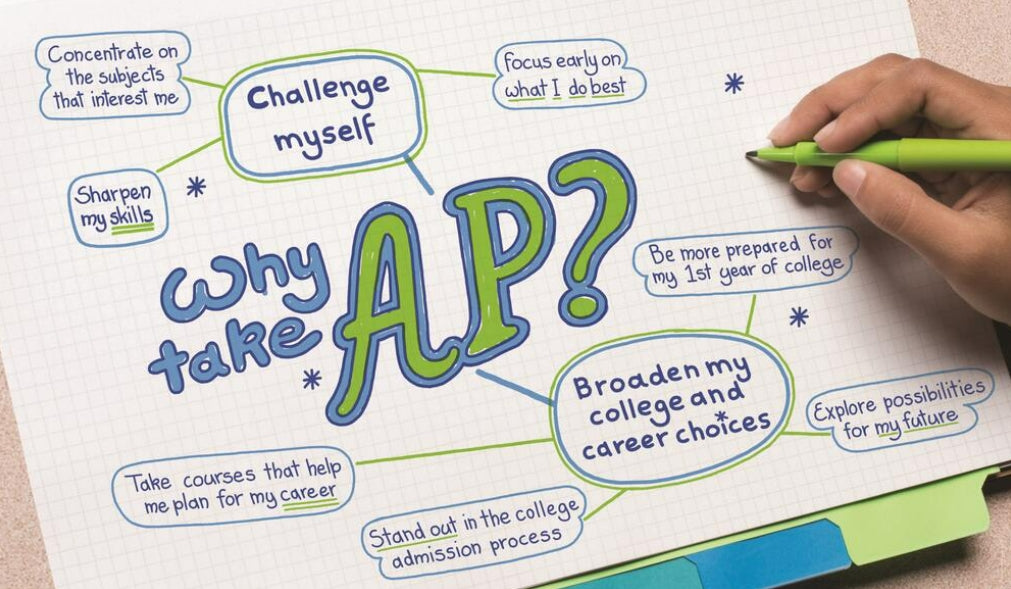
How to Use AP real Tests Effectively
Share
AP Exam Preparation Experience: Tips, Key Points, and the Essential Role of Practice Tests
The AP exam is a crucial stepping stone for many high school students applying to American universities. Preparing for it can be challenging but manageable with a scientific plan and effective strategies. Drawing from my experience, I’d like to share practical tips and key points, especially highlighting the critical role of past exam questions (practice tests) in your preparation. I hope these insights help you succeed.
1. Key Tips for AP Exam Preparation
-
Make a Reasonable Study Plan
The AP syllabus is broad, and study time is limited. Creating a well-structured plan is essential. Break down your preparation into phases—start by solidifying fundamentals, then focus on difficult topics and common pitfalls. -
Understand the Exam Format and Question Types
Each AP subject has different question formats and timing. Familiarizing yourself with the structure—multiple-choice, short answer, essays—helps you allocate time wisely during the exam and avoid unnecessary stress. -
Keep Track of Mistakes and Review Them
Record the questions you get wrong and analyze why. Regular review of your mistakes is vital to avoid repeating them. Consider keeping a dedicated mistake notebook. -
Develop Answering Skills and Logical Expression
For essay and free-response sections, clarity and logical structure matter a lot. Practice writing organized and well-supported answers to improve your scores.
2. Important Things to Keep in Mind During Preparation
-
Time Management
Since exam time is limited, pace yourself. Don’t get stuck too long on a single question—answer easier ones first to secure marks and then tackle tougher problems. -
Understand the Scoring Rubric
Knowing how your answers will be scored—especially for essays—can help you focus on the key elements that graders look for, like argument depth and evidence quality. -
Maintain a Positive Mindset
Preparing for AP exams can be stressful. Stay calm and avoid burnout by balancing study with rest and exercise, which will improve your learning efficiency.
3. The Irreplaceable Role of Practice Tests in AP Preparation
Practice tests are the closest resource to the actual exam in terms of difficulty and question types. Their benefits include:
-
Familiarize Yourself with Exam Style and Difficulty
Practice tests help you get used to the question format and challenge level, so you’re not caught off guard on exam day. -
Identify Knowledge Gaps and Improve
Doing practice tests reveals your weak areas, allowing you to focus your study where it’s most needed. -
Improve Time Management Skills
Simulating the exam environment trains you to finish within time limits without rushing. -
Learn High-Scoring Answer Techniques
Reviewing high-scoring answers from past exams teaches you how to structure responses effectively and express ideas clearly.
4. How to Use AP Practice Tests Effectively
-
Simulate Real Exam Conditions
When taking practice tests, replicate the actual exam setting as closely as possible—set strict time limits and avoid distractions. -
Carefully Review and Analyze Your Answers
After completing a test, don’t just check the right or wrong answers—deeply analyze mistakes and learn from them. -
Combine with Textbooks and Study Guides
Practice tests shouldn’t be your only study material. Use them alongside your textbooks and review notes to reinforce concepts. -
Repeat Practice in Cycles
Go through multiple rounds of practice tests, each focusing on different goals—such as improving speed first, then refining answer quality later.
Conclusion
AP exams are tough but with the right approach and persistent effort, you can excel. Practice tests are your golden resource to boost your scores. Make them the cornerstone of your study strategy and build a solid foundation. Want the most comprehensive and up-to-date AP practice tests and detailed solutions? Visit our website and let us help you ace your AP exams!
